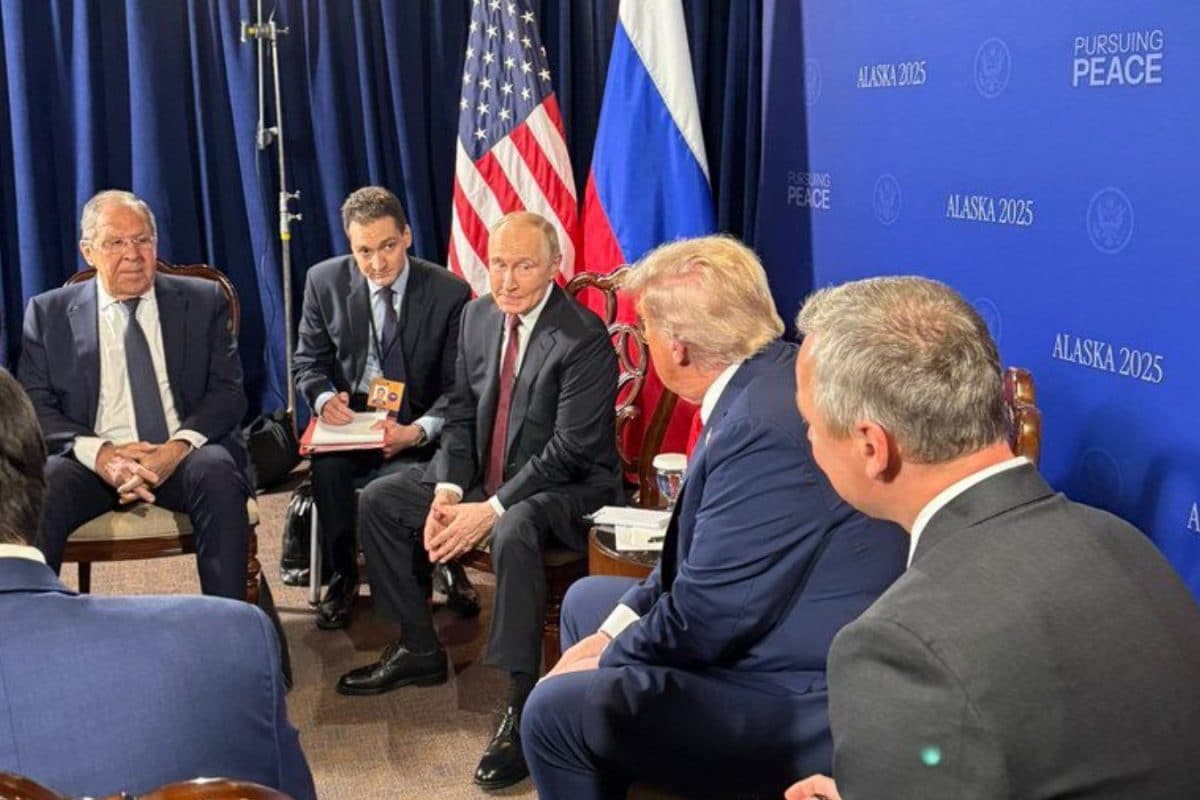

India has officially welcomed the recent summit between U.S. President Donald Trump and Russian President Vladimir Putin in Alaska, aimed at finding a resolution to the ongoing conflict in Ukraine. The Ministry of External Affairs (MEA) has expressed its appreciation for the efforts of both leaders in seeking peace, emphasizing the importance of dialogue and diplomacy in resolving the crisis.
An MEA spokesperson, Randhir Jaiswal, conveyed India's stance, stating that the "world wants to see an early end to the conflict". He further added that "India welcomes the Summit meeting in Alaska between US President Donald Trump and President Vladimir Putin of Russia. Their leadership in the pursuit of peace is highly commendable. India appreciates the progress made in the Summit". This statement underscores India's support for all initiatives that aim to bring an end to the war through peaceful means.
The meeting in Alaska, which lasted for nearly three hours, concluded with both leaders holding a brief joint press appearance. While no immediate ceasefire agreement was announced, Trump described the discussions as "very productive," noting that "a considerable number of agreements" had been reached. Putin also alluded to unspecified "agreements" and said the negotiations were "thorough" and "useful", held in a constructive atmosphere of mutual respect. Despite the positive remarks, Trump also maintained a cautious stance, stating, "There's no deal until there's a deal".
The summit took place against the backdrop of Trump's recent decision to impose a 50% tariff on India's exports to the U.S., a move linked to India's oil trade with Russia. Prior to the meeting, Trump claimed that these tariffs had already caused Russia to lose a major oil client in India. When questioned about the economic implications of the talks, Trump highlighted India's involvement, stating that India had been purchasing about 40% of Russia's oil. He also suggested the possibility of secondary sanctions, which he said would be devastating for Russia, but indicated that he might not have to implement them.
Despite the absence of a breakthrough, there is optimism that the Alaska summit has paved the way for further discussions and a potential resolution to the conflict. Trump mentioned the possibility of a follow-up meeting between Putin and Ukrainian President Volodymyr Zelenskyy, which he believes would be a positive step forward. He also conveyed that he would be in contact with NATO leaders and Zelenskyy. Putin, on the other hand, expressed hope that other leaders would not undermine the diplomatic process.
Experts suggest that Putin's primary objective might be to stall and prolong the negotiations. While Trump has expressed his desire for a rapid ceasefire, he also acknowledged the need for Ukraine's agreement to any potential deal. Some analysts interpret the meeting as Putin avoiding "severe consequences" from the United States for not ending the conflict in Ukraine.
The lack of a conclusive agreement in Alaska has created uncertainty for India, particularly concerning trade relations with the U.S. India is closely monitoring the situation, hoping for a resolution that would lead to the removal of the additional tariffs. India's reliance on discounted Russian oil has indirectly linked it to the geopolitics surrounding the war in Ukraine. The Indian government is hopeful that Washington and Moscow will reach a final agreement, leading to the removal of the additional tariffs imposed on Indian exports.
In the aftermath of the summit, India awaits greater clarity on the outcomes, the future direction of the Ukraine talks, and the subsequent actions taken by Washington. The country remains committed to supporting peaceful resolutions and de-escalation of the conflict through continued dialogue and diplomatic efforts.